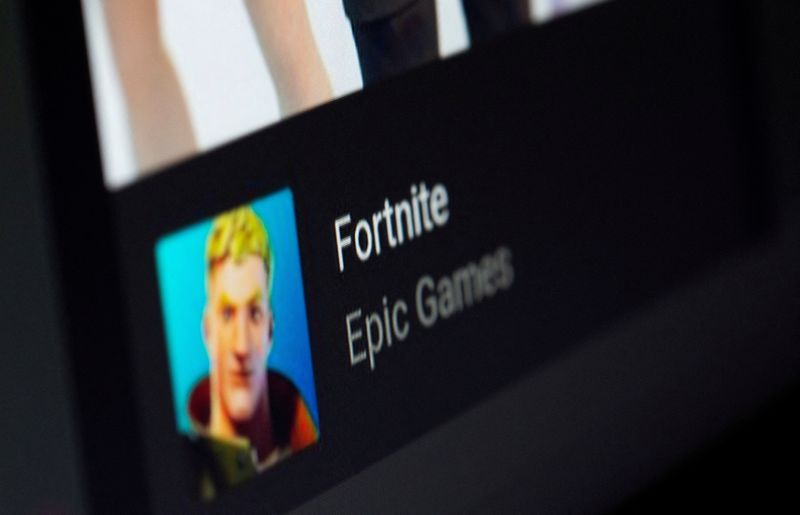By Jaspreet Singh and Harshita Mary Varghese
(Reuters) - Google's stunning defeat in a legal battle with "Fortnite" maker Epic Games may clear the way for rival app stores on its Android mobile system but a lengthy appeals process will likely prevent any changes for years, according to analysts and legal experts.
A jury in California found on Monday that the Alphabet-owned company's Play app store operated as an illegal monopoly, quashing competition and charging app developers unduly high fees of up to 30%.
Epic Games will now have a chance to submit a court filing on how it wants Google's Play Store to be fixed -- potentially putting at risk what Wells Fargo (NYSE:WFC) estimates is $10 billion in annual revenue from app sales and in-app purchases for the tech giant.
"This is a big win for Epic," said Pinar Akman, professor of competition law at the University of Leeds.
"The usual remedy in such case ... would mean Google may be required to allow developers to use payment systems other than Google's. If such a remedy is adopted, then that will have an impact on the entire ecosystem and business model."
Google takes a cut on each digital purchase through Play Store on Android, the mobile system it develops. While revenue from such transactions is a fraction of the total sales, it's a high-margin business for the company, according to analysts.
The remedies could force it to allow rival app stores or lower the fees it charges on app sales and in-app purchases.
Alphabet (NASDAQ:GOOGL) shares were down nearly 1% on Tuesday.
The unanimous ruling by the jury will intensify pressure on Google at a time it is caught in a legal battle with the U.S. Justice Department (DoJ), which has accused the online search leader of breaking antitrust law to stay on top.
"It's worth noting the ad tech case is also a jury trial. Ad tech is more complicated than app stores, but DOJ still must be feeling encouraged by last night's jury ruling," analysts at TD (TSX:TD) Cowen said.
The decision is also expected to deepen questions over Apple (NASDAQ:AAPL)'s market dominance. The company won a similar fight against Epic but both the companies have approached the Supreme Court to review their dispute.
While it may not directly impact the case, the Google ruling will amplify questions about the influence Apple exerts through its App Store, said Eleanor Fox, professor emerita at the New York University School of Law.
"Apple might be and should be more concerned that it will be found to be a monopoly," Fox said.
LENGTHY APPEALS PROCESS
Google has said it will appeal the verdict, and the case will head to the San Francisco-based 9th U.S. Circuit Court of Appeals. That is the same court that heard Epic's arguments last year to revive its antitrust claims against Apple.
In January, U.S. District Judge James Donato in San Francisco will weigh Epic's request for an injunction. Epic and Google will face off for a second time in court — before the judge only.
Google would likely argue that the proposed injunction is too broad and needs to be more tailored.
"It's not so much will there be an injunction but the strength and scope of that remedy," said antitrust legal scholar Christine Bartholomew of the University at Buffalo School of Law in New York.

Still, analysts expect Google to appeal any remedy orders from Judge Donato, delaying any potential changes.
"Using the timeline in Epic v. Apple as a guide, the 9th Circuit would likely rule around Q2 2025," TD Cowen said.